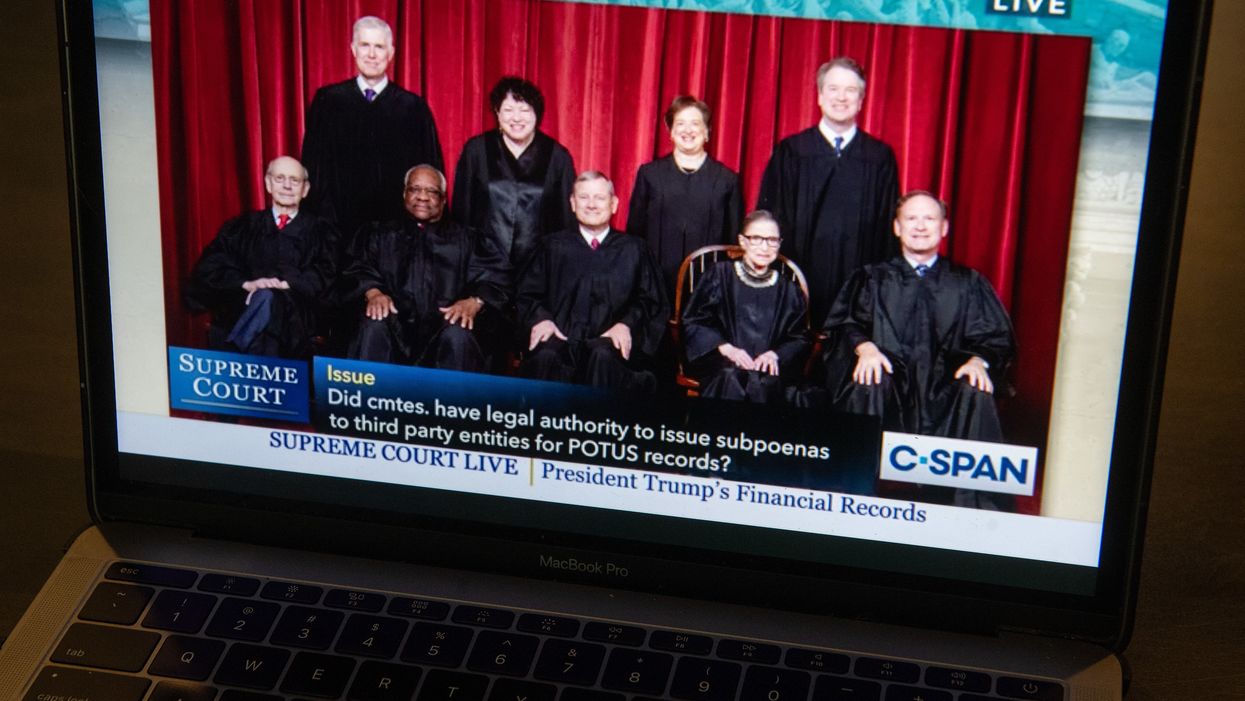The Supreme Court spent two hours Wednesday imagining a world in which presidential electors would be free to vote for whomever they choose. It was not a pretty picture, judging from questions and concerns raised by both liberal and conservatives justices.
While predicting rulings from such oral arguments is a dicey proposition, the tone of the deliberations pointed toward good news for those who believe members of the Electoral College may be compelled to vote for the popular vote winner in their state, the way it generally works now.
If the decision, expected in June, goes the opposite way, the prospect of electors going rogue would cast even more doubt on the predictability and reliability of democratic institutions in our polarized times.
More broadly, the dispute before the court has become a proxy for the ongoing debate about whether the Electoral College should be eliminated in favor of presidential elections entirely by the will of the people.
Two of the past three presidents, George W. Bush in 2000 and Donald Trump in 2016, won the White House with electoral vote majorities but came in second in the popular vote. Trump's win came even though 10 of the 538 presidential electors were "faithless," meaning they sought to vote for someone other than the candidate their state preferred.
Two of the justices in the court's conservative wing, Samuel Alito and Brett Kavanaugh, raised the prospect of post-election chaos if electors started acting as free agents and their states could not punish them. Alito brought up the scenario twice.
Justice Elena Kagan, one of the court's most liberal members, wondered aloud whether the court should leave things as they are if the language of the Constitution is not clear.
The arguments were the last on the court's calendar for this term and, as with nine other cases, they were conducted by conference call because of the coronavirus — with the public allowed to listen in, live, for the first time.
What brought the issue to the high court was the decision by three electors each in Colorado and Washington to cast ballots in 2016 for people other than the Democratic winners of the popular vote in both states: presidential nominee Hillary Clinton and vice presidential candidate Tim Kaine.
All six were part of an effort to get enough electors (it would have taken 37) to go against the wishes of the voters in their states to deny Trump the presidency and throw the election into the House, where they hoped a campaign to choose a Republcian other than him would succeed.
The three Washington electors voted for former GOP Secretary of State Colin Powell and were each fined $1,000 under state law that directed the electors to vote for candidates who had won the most votes statewide.
In Colorado, elector Michael Baca attempted to vote for former Gov. John Kasich of Ohio, also a Republican, at which point he was replaced by someone who voted for Clinton. The other two delegates backed down and supported Clinton.
The faithless electors then challenged the laws in each state. The Washington Supreme Court affirmed the punishments, but the federal 10th Circuit Court of Appeals said Colorado had no right to remove Baca.
Lawrence Lessig, the Harvard law professor who's one of the best-known legal minds in the democracy reform world, represented the faithless electors and argued they were exercising the sort of discretion people in those posts have had since the beginning of the country. His brief in the case said more than 180 votes in the 20 presidential elections from 1796 to 2016 were cast for someone other than the voters' choice.
He asserted that, while electors may have a moral or political obligation to vote as their states do, it's unconstitutional to punish them for doing otherwise.
Lessig, responding to Alito's question, denied there was a "good possibility" that chaos would ensue if the court ruled in his favor, although he did concede it was possible.
Becoming president requires winning a majority of 270 members of the Electoral College, or else the decision goes to the House. So theoretically the outcome of an election could be changed by only a handful of electors — or just two of them just 20 years ago, for example, when Bush secured only 271 electoral votes.
Justice Sonia Sotomayor said that, while the original idea may have been presidential electors unbound by their states' results, that has been the exact practice for most of the country's history.
Lessig argued that no matter the way history has played out the justices had to "interpret the Constitution as it was written," which he believes favors his argument.
Noah Purcell, solicitor general for the state of Washington, said freeing electors to do whatever they wanted without consequence could lead to a scenario where electors could take bribes to determine their votes. "That's just absurd," he said. "That just makes absolutely no sense."
In all, 32 states and the District of Columbia have laws meant to discourage faithless electors. But until the last election, no state had punished or removed such an elector.
A brief in support of states' rights to have such laws was signed by representatives of 45 states.
And Colorado Attorney General Phil Weiser closed Wednesday's arguments by calling a ruling that frees electors from control by the states a "treacherous experiment" that could unleash a "time bomb" in our democracy."




















Trump & Hegseth gave Mark Kelly a huge 2028 gift